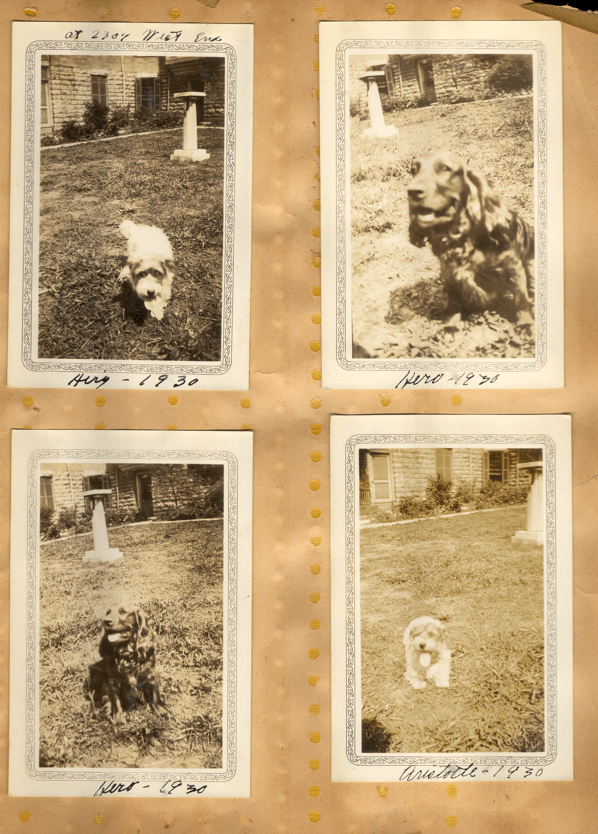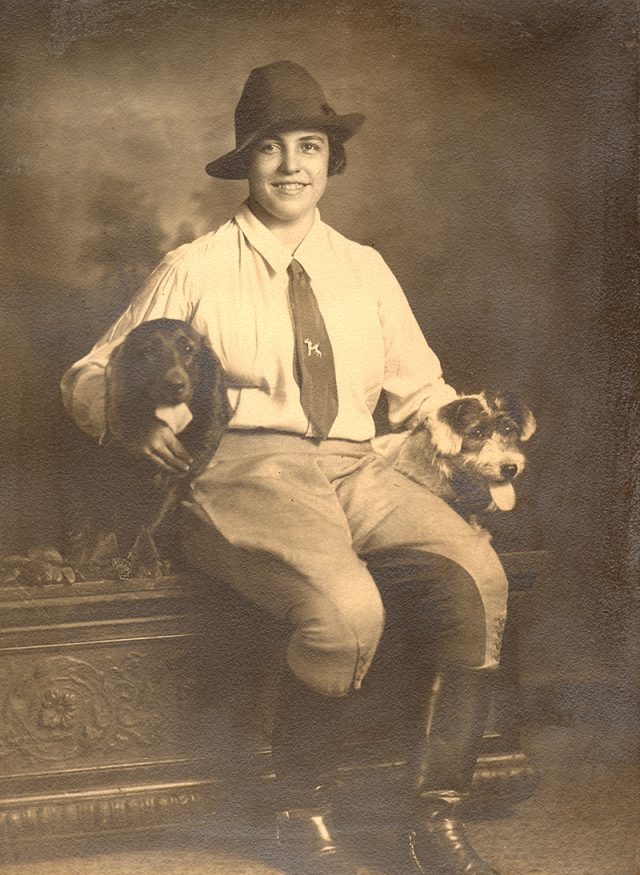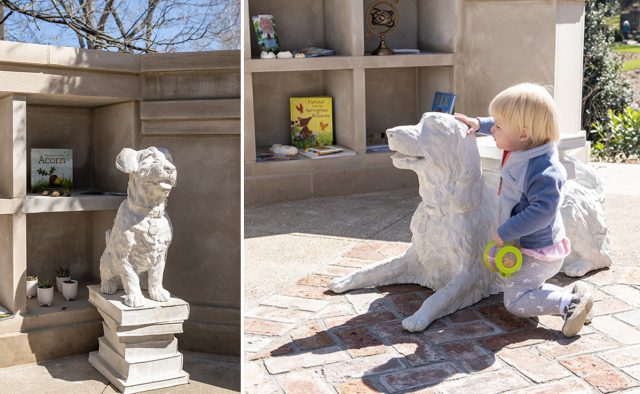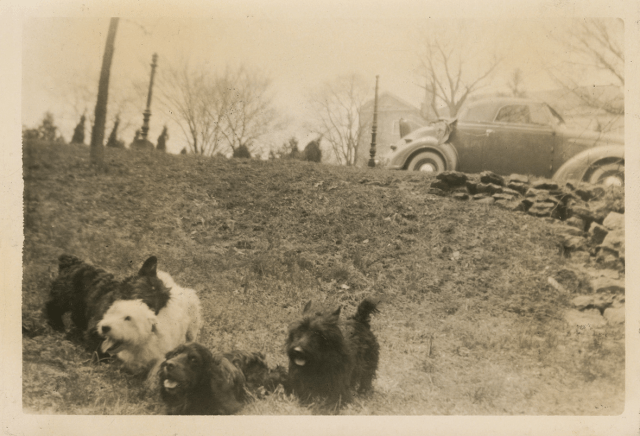Extraordinary creature! So close a friend…
Thomas Mann, “A Man and His Dog,” 1919, 1930
Of all God’s creatures, there is only one that cannot be made the slave of the leash.
That is the cat.
Mark Twain, Notebook, 1894
The Cheekwood estate offered ample opportunity for four-footed, furry companions to patrol the one hundred acres or reside in the mansion’s original thirty-six rooms. Indoors or out, the Cheekwood dogs and a cat became a topic of the family members’ letters, both in brief and in extensive accounts of the pets’ antics, veterinary care, and sad passings too. Aside from accounts of the family’s horses (and Mabel Cheek’s brief foray into poultry with Rhode Island Red chickens), the letters offer glimpses of family life with canine and feline allies.

In time, the Cheeks’ spaniels and terriers were named Bruce and Laddie, Daniel and Cinder, but early-on, two of the family’s hound dogs were named for figures in Greek mythology and history. A mythical priestess, Hero, shared kennel space with Sappho, a famed poet considered to be the author of some ten thousand lines of verse. Most likely, it was Huldah or Leslie, Jr. who bequeathed such names, for their classical schooling familiarized brother and sister with Greek and Roman myths and ancient history. “Sapho [sic] and Hero are fine ‘coondogs,’” their mother reported to Huldah, who understood these were hunting dogs, released at night to hunt raccoons. (Mother Mabel need not have known of the one night when, as Huldah wrote, “I collected my dogs and took a walk all over Cheekwood…. the gardens were so serene and lovely, the silence so dense with the tiny noises of darkness.”)
Caroline the cat hunted too, her nocturnal escapades reported regularly at Mabel Cheek’s bedside. “Caroline presents me with some tribute almost every morning,” Mrs. Cheek admitted with some dismay. “She meows by the bed until I wake up and look. Lizards, moles, and mice were bad enough,” she continued, “but yesterday her offering was a baby Cardinal, today—oh horrors—a baby rabbit.”
If Caroline had free range at Cheekwood, she was nonetheless outdone on one occasion by a favorite housedog, Daniel, possibly a West Highland white terrier. Daniel had avoided the occasional dogfights within the pack, hastening “up the kitchen stairs” at the first sign of trouble between Laddie and Bruce. However, Daniel suffered an injury to his paw so severe that he spent a night at the veterinary clinic and came home with a front paw in a splint. Huldah’s name for this purebred— “Daniel-Darling-Sweetheart-Pie”—points to the care and cosseting he would receive during his recovery. His place at the family dinner table crowns Daniel as top dog at Cheekwood. No other family canine or feline was reported to have a seat at the table.

On passing, the pets were interred in wood box coffins and laid to rest in a pet cemetery on the Cheekwood grounds, all with headstones bearing their names. The headstones have been moved from the original pet cemetery but remain on the property today and can be found at the back of the Frist Learning Center, down the hill from the Swan Lawn. Statues of Hero and Aristotle have been erected and are displayed in the PNC Living Library in the Children’s Garden.

Blog post provided by Cheekwood’s Writer-in-Residence, Cecelia Tichi, Ph.D.
Cecelia Tichi is an award-winning author and Professor of English and American Studies Emerita at Vanderbilt University. Her books span American literature and culture from colonial days to modern times, but her recent work draws upon the Gilded Age (post-1870) that prompted her book on Jack London and another on seven activists in that tumultuous era.
Cecelia’s research and teaching inspired What Would Mrs. Astor Do? The Essential Guide to the Manners and Mores of the Gilded Age, followed by Gilded Age Cocktails and Jazz Age Cocktails , which set the stage for her mystery crime novels that boast “Gilded” in each title.
Cecelia can be followed on her website: https://cecebooks.com/

